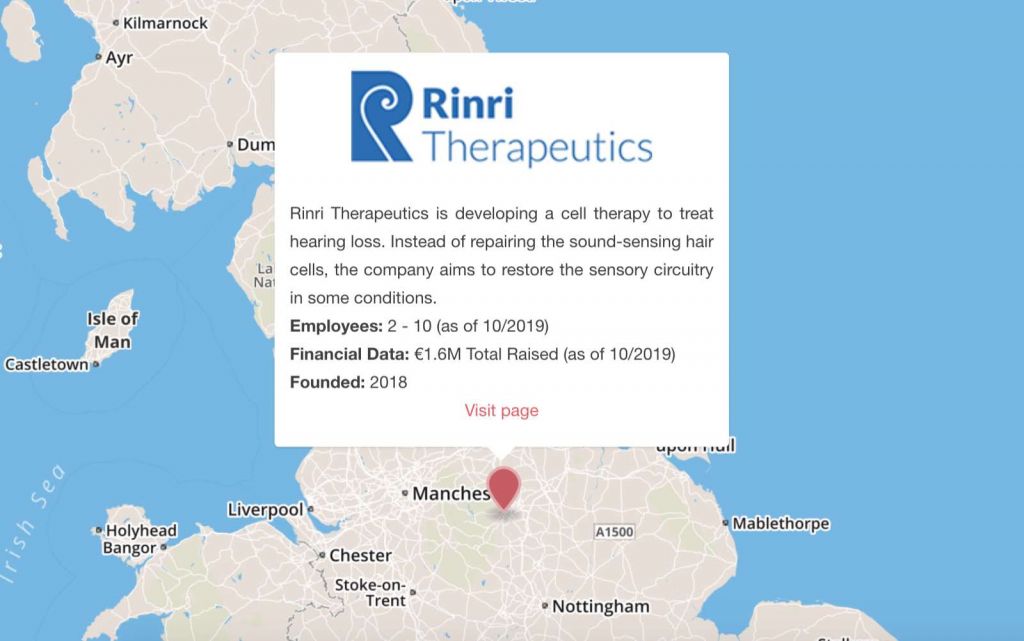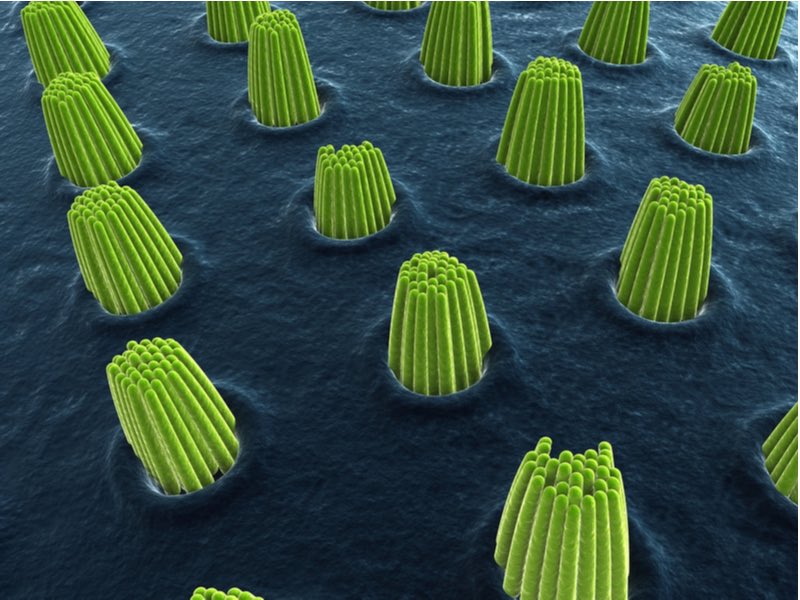Newsletter Signup - Under Article / In Page
"*" indicates required fields
Sheffield is one of the UK’s historic industrial bases. It also hosts the biotech Rinri Therapeutics, which is developing a stem cell therapy to treat deaf patients who are not eligible for cochlear implants.

Mission: To develop a stem cell therapy for a rare form of deafness where the neuronal wiring underlying the auditory system is damaged. This could provide a treatment for patients that can’t benefit from cochlear implants.
Most deaf people have damage to the sound-sensing hair cells of the inner ear. For many of these people, this can be circumvented by using cochlear implants, which pass electrical signals directly to the auditory nerve. A small percentage of deaf people have damage to the nerve cells carrying electrical signals in a condition called auditory neuropathy, and do not benefit from cochlear implants.
Rinri Therapeutics was spun out of the University of Sheffield in 2018 with the aim of developing a stem cell therapy for auditory neuropathy. The company grows embryonic stem cells into auditory nerve cells and injects these cells into the ear, where they are designed to replace the damaged cells.
“The regenerative capacity of inner ear hair cells and neurons is zero. You can’t regenerate the complement of cells you’re given at birth,” Simon Chandler, CEO of Rinri Therapeutics, told me. “This makes it a big challenge, ultimately.”
Rinri’s technology has already improved the hearing of gerbils in a 2012 study published in Nature. Funded with a €1.6M seed round earlier this year, the company aims to test the therapy in humans within the next three years.

What we think:
If approved, Rinri’s stem cell therapy could be the first treatment to regenerate inner ear cells. This could provide a much-needed cure for sufferers of auditory neuropathy.
There are several groups working on stem cell therapies for deafness such as in US universities including Stanford University. Another example is the US company CBR Systems. In a small clinical trial, the company recruited children with a form of deafness called sensorineural hearing loss and injected them with blood from their own umbilical cord, which contains stem cells. According to the company, five children improved their hearing after the treatment.
Rinri’s approach is different from other groups and companies in this field, as it is focused on repairing the inner ear’s circuitry, and not the sound-sensing cells themselves.
While cell therapies hold a lot of potential for regenerative medicine, there is still a long way to go before they become a regular part of healthcare. Big hurdles to the adoption of cell therapies include manufacturing and transport. In addition, regulations for these treatments are still catching up with the technology. It remains to be seen how the regenerative medicine field tackles these challenges over the coming years.
Images from Shutterstock






